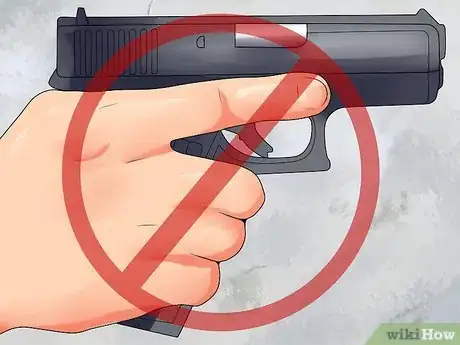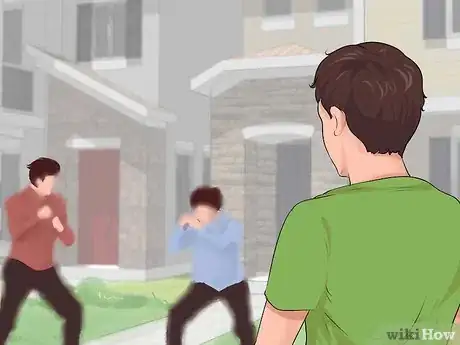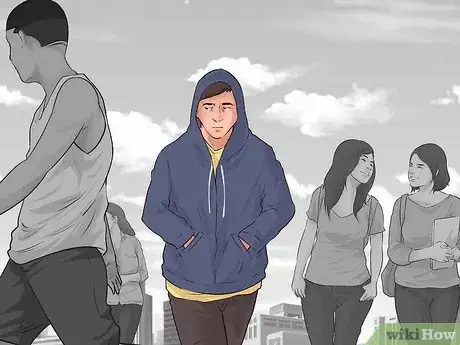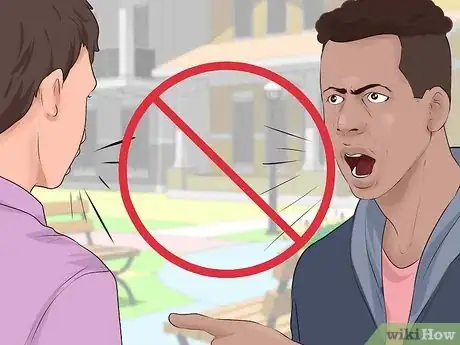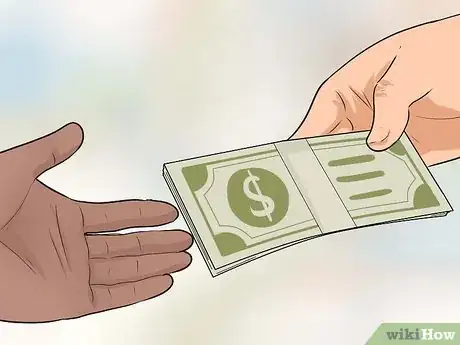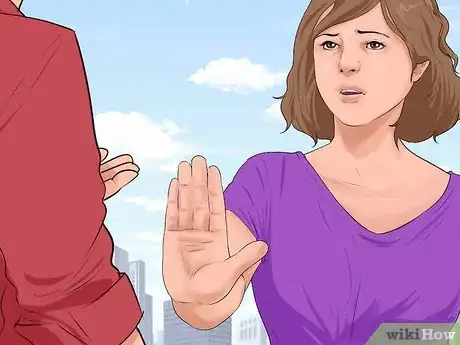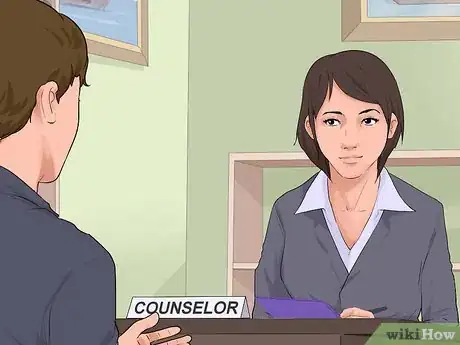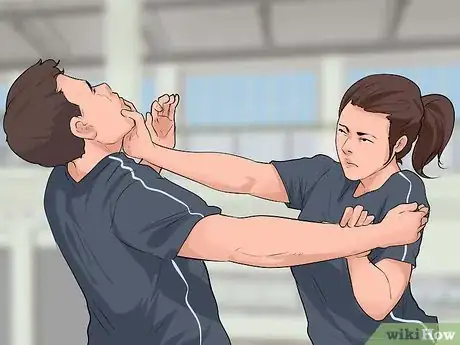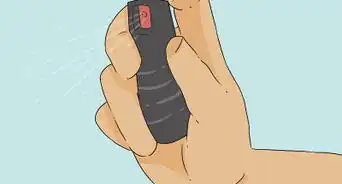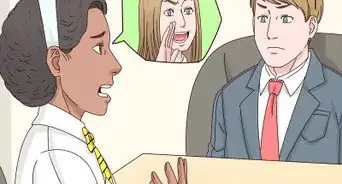This article was co-authored by Katie Styzek. Katie Styzek is a Professional School Counselor for Chicago Public Schools. Katie earned a BS in Elementary Education with a Concentration in Mathematics from the University of Illinois at Urbana-Champaign. She served as a middle school mathematics, science, and social studies teacher for three years prior to becoming a counselor. She holds a Master of Education (M.Ed.) in School Counseling from DePaul University and an MA in Educational Leadership from Northeastern Illinois University. Katie holds an Illinois School Counselor Endorsement License (Type 73 Service Personnel), an Illinois Principal License (formerly Type 75), and an Illinois Elementary Education Teaching License (Type 03, K – 9). She is also Nationally Board Certified in School Counseling from the National Board for Professional Teaching Standards.
There are 10 references cited in this article, which can be found at the bottom of the page.
wikiHow marks an article as reader-approved once it receives enough positive feedback. In this case, several readers have written to tell us that this article was helpful to them, earning it our reader-approved status.
This article has been viewed 147,894 times.
The best way to avoid getting into trouble in a fight at school is to avoid getting into the fight in the first place. Unfortunately, that isn't always possible – it is estimated that as many as 1 in 4 of all American high school students were involved in a physical fight in the past year. If you are faced with a physical conflict, remember that the goal of a fight isn't to win – it is to walk away without being injured. If you take precautions beforehand, you may be able to avoid getting into trouble with the school or police, or at least minimize the severity of your punishment.
Steps
Avoiding Trouble with the School or Police
-
1Always allow your opponent to attack first. If you are seen, you can claim you were defending yourself. If the authorities believe you, your opponent will you be the one who gets in trouble.
- If your opponent refuses to strike first, just walk away.
- Expect to be in serious trouble if you hurt your opponent, even when they started it. Many schools have a zero-tolerance policy on violence, and will suspend or expel both kids involved in a fight.
-
2Remember that when you are on school property, laws are stricter. You aren't protected by the same constitutional rights that normally apply when you are at home.
- Some schools call the police for even the most minor fights or other public displays of anger like punching lockers or throwing things.
- In some states, the same laws apply on or off school grounds, if there is proof that the fight began at school. You will be in trouble with the school, and the police as well.
Advertisement -
3Avoid bringing anything to school that even looks like a weapon. When weapons are involved, violence escalates immediately and can quickly get of control. Every year, at least 7 percent of American high school students are threatened or injured by another student carrying a weapon. Because of this, laws about guns and other weapons have become increasingly strict over the years.[1]
-
4Think about witnesses. Be sure to have some of your friends around to back up your side of the story. Never get drawn into a fight if the only witnesses are your opponent's friends.
- Avoid places where a teacher is likely to see you.
- Appoint a lookout to let you know if someone is coming.
Avoiding a Fight
-
1Be aware of your surroundings. You can avoid a lot of trouble if you only hang out with your friends in open, well lit areas where plenty of people are likely to walk by. Notice which places bullies or gangs are most likely to hang out – like a certain park, bathroom, or parking lot – so you can avoid them.
- Avoid taking shortcut through dark or isolated areas, especially by yourself.
- Be sure your parents and friends know your usual schedule, so if you are attacked someone will notice that you aren't where you're supposed to be.
- Don't be distracted by your phone if you are walking alone, and don't wear headphones. Be alert to all the sights and sounds around you.
-
2Avoid dangerous situations. In one study, nearly 20 percent of students reported being bullied at school. Avoiding trouble doesn't mean you are weak, it just means you are smart. Avoiding a fight in the first place is the best way to avoid getting into trouble.[4]
- Try to avoid being in situations where you will be alone with a bully – walk home with a friend, and eat lunch with a group.[5]
- Don't take the bait. Sometimes if you ignore a bully, they will get bored and leave you alone.
- It's usually best to speak up and answer a bully. If a bully thinks you are weak, he or she will try to take advantage of it by being even more aggressive.
-
3Try to calm down your opponent. If someone is threatening you with violence, they are probably already on edge and pumped full of adrenaline. Fighting back might make them even angrier, which will make the situation even worse.
- Learn to control your own temper, so you won't lose control when you feel threatened. Take deep breaths to help you relax.
- If you find yourself alone with a violent person, sometimes it helps to just agree with them until they calm down. You don't have to actually agree with them – just tell them what they want to hear.
- If someone is taunting you, distract them by saying something like, “Is that the bell?” or “I think that was my phone.” Then calmly walk away.
- If a bully is being really persistent and won't let you leave, tell them you will meet them after school. You don't need to actually fight them, you are just trying to buy yourself some time.
-
4Give them what they want. In some situations, it's best to just hand over your homework or lunch money to avoid being hurt. Experts almost always recommend giving a mugger your wallet right away, to avoid a violent situation.[6]
- Tell your teacher or a someone in the office what happened, so they know you actually did your homework.
- Tell a parent or guardian when this happens, so they can make sure it doesn't happen again.
Dealing with Bullies
-
1Have a failsafe response ready. To stay out of trouble, plan in advance how you will handle a confrontation if it happens. When a bully is screaming at you, you're less likely to freeze up and go blank if you already know exactly what you are going to say.[7]
- Interrupt them. Say something like, “Sorry, I need to make a phone call,” and walk away before they can stop you.
- Offer to continue the conversation after class – they may have forgotten you and moved on to something else by then.
- If you know you can pull it off, smile and act amused. The last thing a bully wants is to be embarrassed in front of his friends.
-
2Take control of the conversation. You can avoid trouble at school if you learn to take charge of a dangerous situation before it gets out of control. You may be able to calm your opponent down if you can figure out their underlying motive for harassing you. In some cases, you may be able to find another way to work things out that doesn't involve fighting.[8]
- Every time the bully asks a question, reply by asking her to explain herself. (“Why do you believe that?” or “What makes you think I did that?”)
- Be careful not to lose your temper or come across as sarcastic, as this will only make them angrier.
-
3Talk to someone. If you're being bullied, you are not alone. Talk to your friends about the problem, and get their advice. You'll probably find that many of them have had to deal with the same thing in the past. You can avoid getting into trouble at school by asking them what they did to resolve the situation.
- One out of every 5 high school students in the US reported being bullied at school in 2013, and 1 in every 6 has been bullied online.[9]
- Five percent of US students missed a day or more of school because they did not feel safe from a bully.
-
4Report them. In instances where bullying may lead to physical harm, always tell a parent or a teacher. Bullying is a serious problem – there have been numerous occasions where bullying has resulted in severe injury and even death. You can avoid getting into trouble if the school knows you aren't the one causing the problem.[10]
- Allowing a bully to get away with it will just encourage them to become more violent.
- Parents and teachers will be able to come up with a plan to fix the problem without letting the bully know that you are the one who told on them.
Defending Yourself
-
1Know how to get to cover. Cover can be anything that offers you momentary safety. Be aware of your surroundings, and don't allow yourself to be boxed into a corner.[11]
- Cover can be distance – if you can remove yourself from the situation, your attacker can't get to you. Plan your escape route in advance.
- Cover can also be a physical barrier, like getting to a bathroom or supply closet and locking your attacker out.
-
2Learn basic self defense moves. The best way to avoid getting into trouble is to remove yourself from a fight before it happens. But if you are attacked by a violent person and can't get away, you will need to defend yourself as best you can. You can't really learn these moves without practicing them, so sign up for self defense classes before trying them in person.[12]
- Make a fist and swing upward, hitting your opponent's nose squarely with the heel of your hand. The upward movement carries a lot of force, and is easier to pull off than a boxing-style punch.
- Kick your attacker's knee by using your foot in a horizontal stomping motion. Be sure to take aim first, and strike suddenly before they expect it.
- Use the instep of your foot or your knee with as much force as possible to connect with your opponent's groin with an swift, upward motion.
- Alternate your strikes between face and body – when your opponent goes to protect one vulnerable area, they will leave another area open to attack.[13]
-
3Avoid being overconfident. Even if you have been taking self defense classes and doing well, never assume you will win the fight. There are too many things that can go wrong, and you can never predict the outcome. If you let the situation get out of control, you are far more likely to get caught and get into trouble.
- If you underestimate your opponent he or she may catch you off-guard, and hurt you.
- You are far more likely to get caught if you are reckless – you won't pay enough attention to your surroundings and witnesses.
References
- ↑ http://www.cdc.gov/violenceprevention/pdf/school_violence_fact_sheet-a.pdf
- ↑ https://nces.ed.gov/fastfacts/display.asp?id=54
- ↑ https://nces.ed.gov/fastfacts/display.asp?id=54
- ↑ http://www.cdc.gov/violenceprevention/pdf/school_violence_fact_sheet-a.pdf
- ↑ http://kidshealth.org/en/teens/bullies.html?WT.ac=t-ra#
- ↑ http://kidshealth.org/en/teens/self-defense.htm
- ↑ http://www.kickbully.com/best.html
- ↑ http://www.kickbully.com/best.html
- ↑ http://www.cdc.gov/violenceprevention/youthviolence/pdf/opportunities-for-action-companion-guide.pdf
-Step-6-Version-3.webp)

